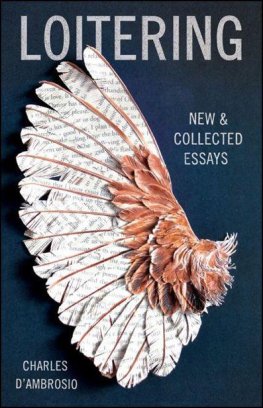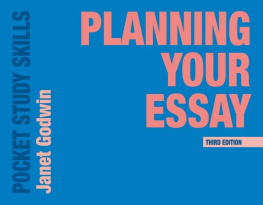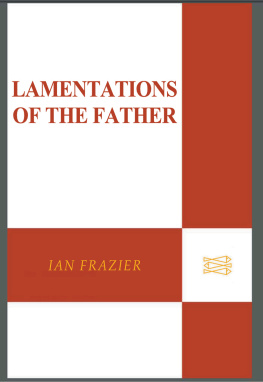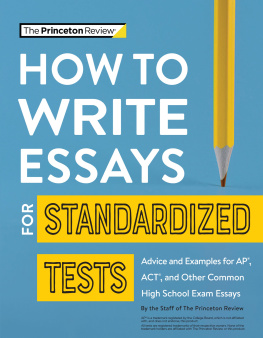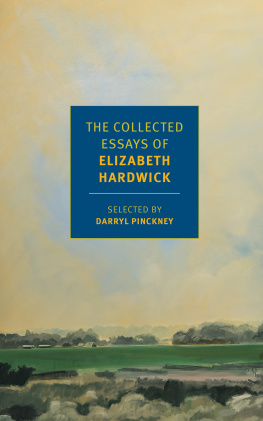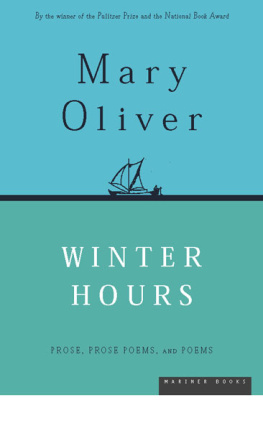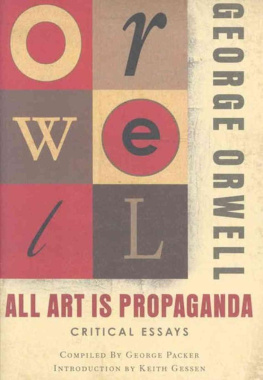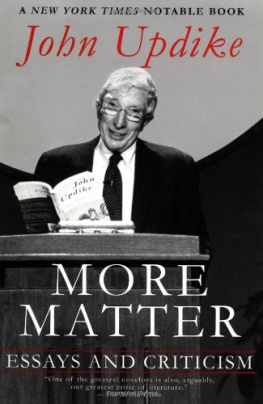Charles D'Ambrosio
Loitering: New and Collected Essays
For all the conversations over the years this book goes out to Drew Bouton, Jon Fontana, and Tom Grimes; and I also send it along with love to some dear people who talked me up, talked me down, and talked me through, Marilyn Davis, Jae Choi, and my sisters; and of course the soul of the book belongs to Mike and Danny, my brothers, who will never read a word of it, though their silence tunes every sentence I write.
Theres an old bus stop in Seattle thats maybe the loneliest place in the world for me, and it was there, reading in the vague light, that I first discovered the essay. Even now when I drive by, I still check that stop, looking for one of my brothers or sisters, although the stop itself has been moved to a better location and the family I might give a lift to is gone. By the standards of the day it was an excellent place to wait for the bus, really the stoop of an apartment, with a marble stairway that was cold but covered, offering shelter from the wind and the rain and a lighted entry that was just bright enough to read by. You had to sit on the top step and slouch over and futz with the book to get the angle, but once you had it, the words resolved on the page. As a bonus there was a bookstore across the street that stayed open late. It was one of those small places that made up for a lack of inventory with sensibility, a bookstore you could trust, and the first that I knew of to hand out free bookmarks, which I thought at the time was infinitely clever. I had just figured out, rather navely, that I could buy my own books, and then almost instantly I became a prig about their condition, so much so that I wouldnt lend them to anyone, at least not without a solemn lecture about their proper handling: no breaking the spines, no dog-earing the pages, no greasy thumbprints. At home, I had my own somewhat wobbly arrangement of brick-and-board shelves, two and then three tiers of ugly pressboard, painted brown and laddered up against the wall, my first piece of furniture. In private, I thought of those shelves with enormous pride, as something I was building, book by book, and brick by brick, and I often looked at them, vaguely satisfied, like a worker inspecting the progress of a job. I wanted the shelves to rise up and reach the ceiling, and for that to happen, all I had to do, I realized, was read.
My sense of the essay as a genre isnt something I can separate from my experience of those early encounters. I bought my first collection from that little bookstore, on their recommendation, and fell in love with the writer M. F. K. Fisher, whose works on gastronomy couldnt have been more foreign to me, growing up, as I did, in a big family, where we boiled everything in vats, drank powdered milk, and my father, fielding a complaint about food, would clench the fist of his free hand and stab his fork at the offending item on his plate and say, Eat it. Your stomach doesnt care. Well into adulthood I was too shy to pepper food at a restaurant, afraid that I would somehow be insulting the cook. Anyway, it was at family meals that we learned indifference to our bodies, but it was in prose, particularly the kind I found in the personal essay, that a relationship to that body began to be restored, at least for me. One of my earliest ideas about writing was that the rhythms of prose came from the body, and although I still believe that, I still dont know what I mean. I would discover, eventually, that some of Fishers love of food was a celebratory rebellion against a similar tyranny at home, a rejection of the dulling rules and sumptuary restrictions of the dinner table set by her grandmother. Prose moves so mysteriously that I believe I heard this unstated fact in the rhythm of her sentences long before her biography confirmed it. It came to me sotto voce, whispered on a lower frequency, a secret shared between intimates. And so, while the superficial subject of Fishers essays may have drawn me in, offering a fantasy world in which foie gras and Dom Prignon mattered, soon enough it was language itself, and more specifically, the right she assumed to be exact about her life, that won me completely. More than the wonders of Provence or advice on how to serve peacock tongues on toast, it was her prose that taught me how to pay attention, and it was the essay, as a form, that was the container, the thing that caught and held the words like holy water, offering the gift of awareness, the simple courtesy of acknowledgment, even to a life as ordinary as mine.
Other essayists followed, and I read them in great passionate jags all of Joan Didion and George Orwell, all of Susan Sontag and Samuel Johnson, all of Edward Abbey and Hunter Thompson and James Baldwin, living for weeks at a time within the sentences of a single writer, excluding other authors, other kinds of reading. I read poems and novels promiscuously but essays were my fast friends. Something in the nature of the personal essay must have instructed me and informed this pattern. And I must have needed that sort of close attachment, that guidance, the voice holding steady in the face of doubt, the flawed man revealing his flaws, the outspoken woman simply saying, the brother and the sister for essays were never a father to me, nor a mother. Essays were the work of equals, confiding, uncertain, solitary, free, and even the best of them had an unfinished feel, a tentative note, that made them approachable. A good essay seemed to question itself in a way that a novel or short story did not or perhaps it was simply that the personal essay left its questions on the page, there for everyone to see; it was a forum for self-doubt, for an attempt whose outcome wasnt assured. That one mind would speak so candidly to another mind held a special appeal to me at a time when I didnt even know I had such a thing. Late at night, sitting on a cold stoop, waiting for the bus, the free and easy conversations I fell into via the essay seemed to suit my station in life perfectly.
For a glimpse inside the essence of the essay as I felt it then, as I understand it now, Id like to misuse this passage from Patricia Hampl.
On the first page of the Confessions [Augustine] poses a problem that has a familiar modern ring: . it would seem clear that no one can call upon Thee without knowing Thee. There is, in other words, the problem of Gods notorious absence. Augustine takes the next step West; he seeks his faith with his doubt: . may it be that a man must implore Thee before he can know Thee? The assumption here is that faith is not to be confused with certainty; the only thing people can really count on is longing and the occult directives of desire. So, Augustine wonders, does that mean prayer must come before faith? Illogical as it is, perhaps not-knowing is the first condition of prayer, rather than its negation. Can that be?
Seeking faith with doubt, thats definition enough for me. Or strike faith, if you must, and leave it at seeking with doubt. And longing. And not-knowing. And the occult directives of desire.
And taking the next step West.
I wrote the earliest of these essays for the Stranger in Seattle because no one else would give me five thousand words and then agree not to change a single comma exactly the kind of hard bargain you can strike when youre willing to work for next to nothing. While the pay wasnt fancy, the freedom was absolute, and at that time in my life the liberty to think and write as I pleased mattered far more than money. I will always feel deeply indebted to the Stranger, and nothing satisfies me more than to acknowledge those foolhardy souls in this preface.
I worked on each of these pieces a stupidly long time, with a determination that was fueled, in part, by vanity. I wanted the writing to live an independent life and not rely on passing opinion or the ephemeral realities of alt-weeklies and magazines to make its way in the world. Rather insufferably I thought of myself as an essayist and bristled when friends and family, in conversation, referred to my published work as articles. The subjects of these pieces mattered, of course, but it was important to me that the sentences alone do the convincing. What this meant in actual practice was that I often had no idea what I was doing, no plan or sense of purpose, until I started putting words on paper. I relied on my ear to a ridiculous extent, trusting that if I got the sound right the music, the mood, the feel of things then sense might eventually make an appearance. Sometimes sense showed up, and other times, in that tussle of trial and error at the heart of all writing, error won the day. My instinctive and entirely private ambition was to capture the conflicted mind in motion, or, to borrow a phrase from Cioran, to represent failure on the move, so leaving a certain wrongness on the page was OK by me. The inevitable errors and imperfections made the trouble I encountered tactile, bringing the texture of experience into the story in a way that being cautiously right never could. In fact, as much as I wrote and rewrote many of these pieces, often, in a contrary mood, the goal of those revisions was to get the thing to read like a rough draft, cutting sonorities of thought and style that seemed dishonest, fighting against the insane clarity of public discourse or, in the more personal pieces, scraping away until I renewed my sympathies for raw subjects that time and habit had turned sclerotic.

